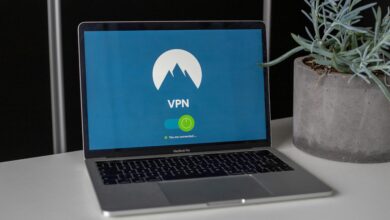The Future of VPN Services: Trends to Watch

Virtual Private Networks (VPNs) have become indispensable tools for safeguarding online privacy, bypassing geo-restrictions, and ensuring secure connections in an increasingly digital world. As technology evolves and user demands shift, the future of VPN services is poised for significant transformation. From advancements in encryption to integration with emerging technologies, here are the key trends shaping the future of VPNs.
Why Are VPNs Becoming More Important?
In an era of heightened cybersecurity threats, pervasive surveillance, and growing concerns about data privacy, VPNs offer a critical layer of protection. They encrypt internet traffic, mask IP addresses, and provide anonymity, making them essential for individuals, businesses, and governments alike. As more people work remotely and rely on public Wi-Fi networks, the demand for robust VPN solutions continues to rise.
Let’s explore the trends that will define the future of VPN services.
1. Enhanced Encryption and Security Protocols
As cybercriminals develop more sophisticated methods to intercept data, VPN providers are investing heavily in stronger encryption and advanced security protocols.
Key Developments
- Quantum-Resistant Encryption : With quantum computing on the horizon, traditional encryption methods may become vulnerable. VPNs are beginning to adopt quantum-resistant algorithms to stay ahead of potential threats.
- Next-Gen Protocols : Newer protocols like WireGuard are replacing older ones like OpenVPN and IPSec due to their faster speeds, lower latency, and improved security.
- Zero-Trust Architecture : Some VPNs are integrating zero-trust principles, which require continuous verification of users and devices before granting access to networks.
These advancements ensure that VPNs remain reliable shields against evolving cyber threats.
2. AI-Powered Threat Detection and Optimization
Artificial Intelligence (AI) is revolutionizing how VPNs operate by enhancing both security and performance.
Applications of AI in VPNs
- Real-Time Threat Detection : AI can analyze network traffic patterns to identify anomalies or malicious activities, such as DDoS attacks or phishing attempts.
- Dynamic Routing : AI-powered systems can optimize server selection based on real-time conditions, ensuring faster speeds and reduced latency.
- Personalized User Experiences : AI can tailor recommendations, such as optimal servers for streaming or gaming, based on individual usage patterns.
By leveraging AI, VPN providers can deliver smarter, more efficient services while maintaining high levels of security.
3. Integration with Emerging Technologies
VPNs are no longer standalone tools—they’re being integrated into broader ecosystems of emerging technologies.
Examples of Integration
- 5G Networks : As 5G becomes widespread, VPNs will play a crucial role in securing ultra-fast mobile connections. However, they’ll also need to adapt to handle increased bandwidth and device connectivity.
- IoT Devices : With billions of Internet of Things (IoT) devices transmitting sensitive data, VPNs will be vital for protecting smart homes, wearables, and industrial IoT systems.
- Blockchain Technology : Some VPN providers are exploring blockchain-based decentralized networks to enhance transparency, eliminate single points of failure, and reduce reliance on centralized servers.
These integrations position VPNs as foundational components of next-generation digital infrastructures.
4. Focus on Privacy and Transparency
In response to growing concerns about data misuse, VPN providers are prioritizing transparency and user privacy.
Initiatives Driving Change
- No-Logs Policies : Reputable VPNs are adopting strict no-logs policies, meaning they don’t store any records of user activity. Independent audits are becoming standard to verify these claims.
- Decentralized VPNs (dVPNs) : Decentralized networks distribute traffic across multiple nodes, reducing the risk of centralized control and enhancing anonymity.
- Open-Source Software : Many providers are releasing open-source codebases, allowing users to scrutinize and contribute to the development process.
This trend reflects a broader movement toward empowering users with greater control over their data.
5. Expansion Beyond Traditional Use Cases
While VPNs were initially designed for privacy and security, their applications are expanding into new areas.
Emerging Use Cases
- Streaming and Gaming : Users increasingly rely on VPNs to access geo-blocked content and reduce lag during online gaming sessions.
- Remote Work Solutions : Businesses are incorporating enterprise-grade VPNs into their remote work strategies to secure employee communications and protect corporate data.
- Censorship Circumvention : In regions with heavy internet censorship, VPNs remain lifelines for accessing uncensored information and maintaining freedom of expression.
As use cases diversify, VPN providers are tailoring their offerings to meet specific needs.
6. Subscription-Free and Freemium Models
The subscription model has long dominated the VPN industry, but alternative pricing structures are gaining traction.
New Pricing Strategies
- Freemium Models : Free versions with limited features encourage users to upgrade to premium plans. This approach lowers barriers to entry while generating revenue from power users.
- Ad-Supported VPNs : Some providers offer free services supported by ads, though this raises questions about user privacy.
- Pay-Per-Use Options : Flexible payment models allow users to pay only for the time or data they consume, appealing to occasional users.
These innovations cater to diverse consumer preferences and expand the reach of VPN services.
7. Increased Regulatory Scrutiny
Governments worldwide are tightening regulations around data privacy and cybersecurity, impacting how VPNs operate.
Implications of Regulation
- Compliance Challenges : VPN providers must navigate complex legal landscapes, balancing user privacy with compliance requirements.
- Ban Risks : Certain countries have banned or restricted VPN usage, forcing providers to innovate ways to circumvent blocks without violating laws.
- Transparency Mandates : Regulations may require providers to disclose operational details, further emphasizing the importance of trust and accountability.
Navigating these challenges will shape the future trajectory of the industry.
8. Growing Emphasis on User Experience
As competition intensifies, VPN providers are focusing on delivering seamless, user-friendly experiences.
UX Enhancements
- Intuitive Interfaces : Simplified apps make it easier for non-tech-savvy users to configure settings and switch servers.
- Multi-Platform Support : Cross-device compatibility ensures consistent performance across smartphones, tablets, laptops, and smart TVs.
- Customer Support : 24/7 live chat, tutorials, and troubleshooting guides enhance user satisfaction and retention.
A positive user experience is now a key differentiator in the crowded VPN market.
9. Environmental Sustainability
As global awareness of climate change grows, some VPN providers are adopting eco-friendly practices.
Green Initiatives
- Energy-Efficient Servers : Providers are transitioning to renewable energy sources and optimizing server efficiency to reduce carbon footprints.
- Carbon Offset Programs : Companies are investing in projects that neutralize emissions generated by their operations.
- Sustainable Partnerships : Collaborations with green tech firms promote environmentally responsible practices throughout the supply chain.
Sustainability is becoming a competitive advantage for forward-thinking VPN brands.


